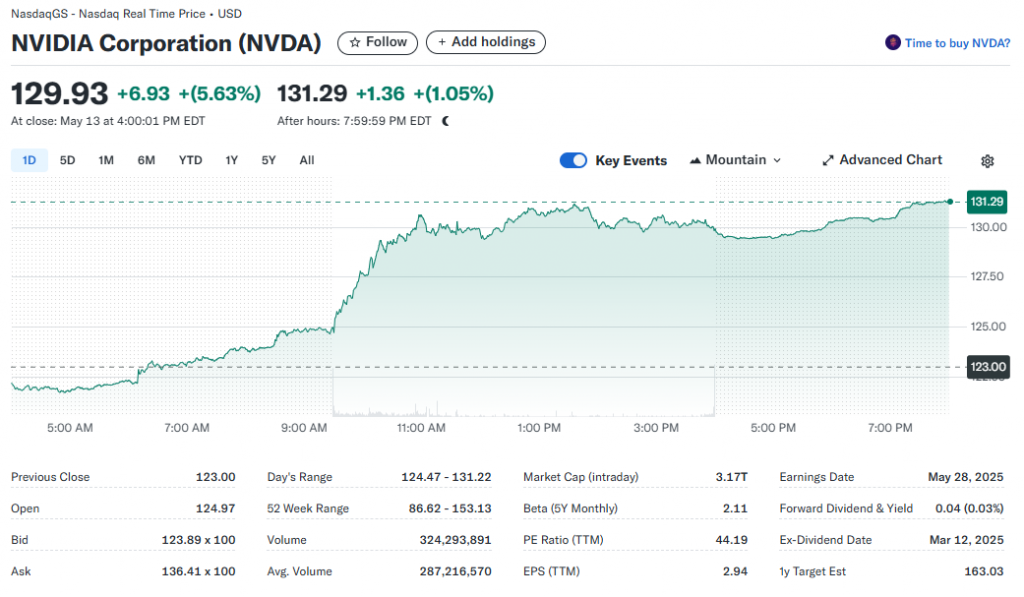US Slams Huawei AI Chips With Global Ban—Nvidia’s Monopoly Play Just Got Easier
Washington drops the hammer: Huawei’s AI chips now face a worldwide blacklist. The move kneecaps China’s tech ambitions while handing Nvidia a golden ticket to print money.
Wall Street’s already salivating—Nvidia shares are primed for a moonshot as competitors get locked out. Another day, another regulatory gift to the semiconductor oligarchy.
 Source: Yahoo Finance
US Blocks Huawei AI Chips: How Market Volatility and Nvidia Stock Impact Tech Investments
Source: Yahoo Finance
US Blocks Huawei AI Chips: How Market Volatility and Nvidia Stock Impact Tech Investments

Export Controls Tighten Despite Tariff Truce
The US blocks Huawei AI chips despite Washington and Beijing recently announcing a 90-day tariff reduction deal. The BIS stated that Huawei’s development of Ascend chips is “likely” violating US export controls, and users could face “substantial criminal and administrative penalties,” such as imprisonment, fines, and other restrictions.
Nvidia CEO Jensen Huang stated:
Nvidia Benefits Amid Market Volatility
Nvidia stock experienced significant growth after the US blocking Huawei AI chips announcement. The company’s shares have, at the time of writing, rebounded about 28% from early April lows, which shows a remarkable resilience amid all of the market volatility and uncertainty that investors are facing.
Wall Street projects an impressive 54% revenue growth for Nvidia in FY 2026, positioning it for potential market dominance. The timing of these restrictions on Huawei AI chips couldn’t be better for Nvidia, as Jensen Huang has also just announced a major deal to supply 18,000 of their Blackwell chips to Saudi AI company Humain.
Emerging Challenges for Nvidia
Despite positive market reaction to restrictions on Huawei AI chips, some analysts remain cautious about Nvidia’s future prospects. Seaport Research Partners’ Jay Goldberg initiated a sell rating with a $100 price target in late April, which represents the first Wall Street sell rating for the company.
Goldberg explained:
Nvidia’s gross profit margins reveal mounting competitive pressure. The company reported a 78.4% GAAP gross margin one year ago, but this figure has declined every quarter since then, and the Q1 2026 estimates are at approximately 70.6%, which is concerning for some investors.
Chiu Shih-fang, a senior tech supply chain analyst with the Taiwan Institute of Economic Research (TIER), said:
As Nvidia approaches its May 28 earnings report, investors will closely monitor how these US blocks on Huawei AI chips might affect the company’s strategy and growth potential in an increasingly complex and competitive landscape.

